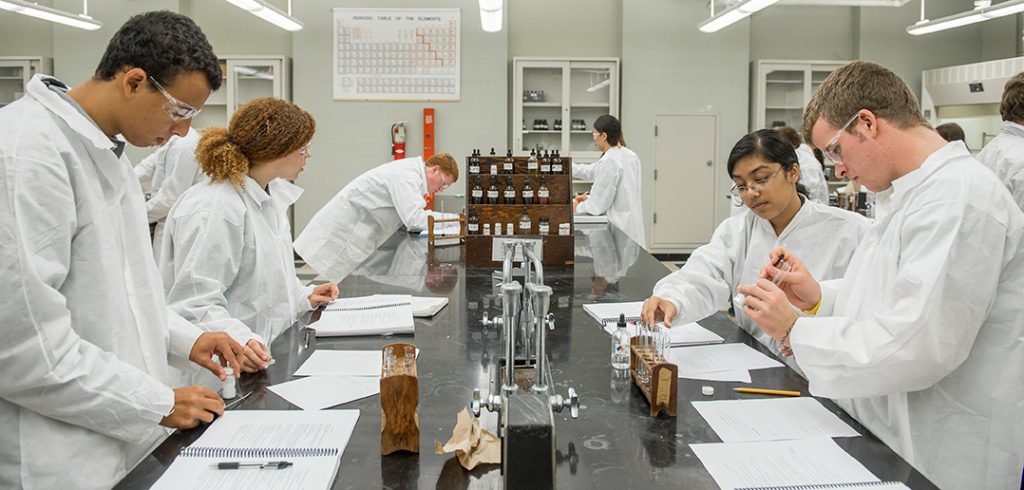
“It is increasingly obvious that the STEM disciplines now share the same prominence as the humanities as a lingua franca of educated citizens,” said Joseph M. McShane, S.J., president of Fordham. “One cannot navigate the modern world without a basic understanding of STEM, and the Blavatnik Family Foundation gift helps ensure Fordham students are equipped to lead their fields in the decades ahead.”
The foundation was established by Len Blavatnik, the Ukrainian-born, American-educated industrialist who holds dual citizenship in the United States and the United Kingdom. Through the foundation, Blavatnik has given more than $800 million to institutions around the globe.
“Fordham’s next 181 years will be shaped largely by its STEM programs,” Roger A. Milici, Jr., PAR ’22, vice president of Development and University Relations, said of the University, which will celebrate its 181st anniversary in June. “This inaugural investment by a global philanthropist, generously made through the Blavatnik Family Foundation, is both inspiring and acknowledgment of how philanthropy creates impact. This gift will advance our ability to make a rigorous Jesuit education in the capital of the world more accessible and richer in this important field of discovery and innovation.”
Support for Students Through Scholarship
The foundation has allocated $200,000 of the gift to fund the Blavatnik Scholarship for Excellence in STEM, which will provide financial aid resources to high-achieving Fordham undergraduates majoring in STEM fields.
“Scholarships like this one play an important role in enabling diverse and talented students to come to Fordham to study with our outstanding STEM faculty who are doing groundbreaking work in areas like integrative neuroscience, environmental science, computer science, and more—work that is making a difference in the city, the nation, and the planet,” said Laura Auricchio, Ph.D., dean of Fordham College at Lincoln Center.
Promoting Research
The remaining $50,000 will fund the Len Blavatnik STEM Research Fellowship, which will support student research projects in STEM areas. The fellowship money will be allocated by the deans at Fordham College at Lincoln Center and Fordham College at Rose Hill.
Fordham College at Rose Hill Dean Maura Mast, Ph.D., said the fellowship will provide needed support for student researchers.
“Fordham undergraduates consistently publish with faculty, present at conferences, and are true partners in the creation of new knowledge,” said Mast, who teaches a STEM course based on a recently released second edition of a textbook she co-authored, titled “Common Sense Mathematics.”.
Mast noted that Fordham is one of the top institutions to induct students into Sigma Xi, the scientific honor society; 72 Fordham students joined this past spring. She said she has found that students appreciate that their research may lead to more questions than answers.
“They see STEM as a place of discovery, creativity, complexity, and problem solving,” she said. “Doing science helps them understand the world and make it better.”
She added that some students set out to address the big problems of the day, such as diseases like COVID-19, HPV, and cancer, as well as environmental issues such as climate change, soil erosion, pollution, and water quality. Yet others are drawn to small-scale challenges, like developing ways to use nanowires in common applications such as glucose sensors and fuel cells, studying the relationship between genetic mutations and mitochondrial diseases, and researching particle physics, she said.
“Thanks to donor support that provides funding for research grants, lab supplies, and conference participation, undergraduate research has become a signature program in both [of Fordham’s undergraduate liberal arts]colleges,” she said.

